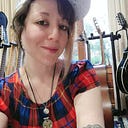I wear faux leather / but engage in some real: On ‘Your Emergency Contact Has Experienced An Emergency’ by Chen Chen
Your Emergency Contact Has Experienced An Emergency (2022) by Chen Chen
Immersing myself in Your Emergency Contact Has Experienced an Emergency was not unlike strolling with the narrator (of) Marcel Proust’s world in In Search of Lost Time. In the sense that one has the surreal, baroque illusion of walking alongside the poet-as-narrator, absorbing exquisite multi-sensory details in real time and feeling one is hearing as much of Chen Chen the poet-narrator’s thoughts as possible.
While reading this book I felt I was wandering a (sometimes Massachusetts) city-scape I am partially familiar with, both dreamy and sleep-deprived. The poetry feels like a meta-urban space populated with technicolor Instagram filtered snapshots, dapper “outfits of the day,” dance music CDs, campus libraries, savory foods, images of beautiful bodies in night clubs, and the glowing outline of a beloved. The mundane poses of cozy, intimate privacy within a book and love-filled apartment.
“People so lofty, they sound as if they shit marble!” This line delivered by Mozart in the sometimes scatological 1984 film Amadeus is ringing in my mental teleprompter memory after reading Chen Chen’s poem “Winter.”
Years ago, a teacher said never to use the word “poop” in a poem.
Today, the icy kiss of the toilet seat wakes me up.
Today, I poop while my boyfriend shouts from the living room, Did you hear that,
meaning the atomic scientists who say we are now two & a half minutes to midnight.
But still I marvel whenever poop comes out as one true Platonic tube.
I am trying to be marvelous.
& to make my enemies throw up. . .
My boyfriend & I are not platonic. . .
I mean, is “shit,” is “scat” more or less literary than “poop” ? (37–38)
Chen Chen’s poetry is a simultaneous spectrum of the sacred/profane, goofy while sensitive and romantic, pop-culture filled, and unavoidably alert to bigotry and its resulting violence. All the while the poems never lose their sense of play in writing as exploration, and the poet-narrator ever-reaching towards queer joy.
The first section of Your Emergency Contact Has Experienced An Emergency contains poems titled “The School of…” as there are many ways one may be enculturated and indoctrinated. Chen Chen addresses the seemingly endless higher education journey itself in “The School Of More School:”
I can’t decide
whether the university
is a refuge for the bookish lonely
or a T-shirt store
run by a soda company. (44)
This collection is curated so thoroughly I felt connected, part of a cosmic group text conversation, or like I had slipped into the Close Friends filter of their Instagram feed. Full disclosure: I follow Chen Chen on Instagram and Twitter, I find their social media shares immensely enlightening and uniquely liberating. I feel Chen Chen is the Elder Millennial / Xennials’ queer poet voice we have been waiting for our whole lives. In one of the “Summer” poems:
You are not a jigglypuff, not yet a wigglytuff.
Reporters & fathers call your generation “the worst.”
Which really means “queer kids who could go online & learn that queer doesn’t have to mean disaster.”
Or dead.
Instead, queer means, splendiferously, you. (17)
I can’t tell you how healing it was to see Chen Chen’s outfit selfies on Instagram a couple years ago during their visiting writer professorship. They were really lovely shots of him in pastels and prints — distinctively dapper, fun sartorial choices in front of bookshelves boasting dots of orange sticker circles on the spines of slim poetry books (to identify their ownership.) It was recognizably familiar, my prior Brandeis advisor’s office where I had sat so many times fearing my poetry and self were “not deep enough, not Sapphic enough” for my professor.
(Sixteen years later:) I was sitting inside my walk-in closet reading this book (babysitting a poopy sick cat) and kept company by this collection’s flamboyant, utterly un-closeted poems. The poet-narrator has plenty of reflective self-deprecation, but in a defiant auto-Oscar Wilde-ean manner. There is adult confidence slicing through in remembering. The poems are thoroughly aware that the homophobia encountered every moment in life can break your mother’s heart and even get you murdered while out dancing. In “Elegy While Listening to a Song I Can’t Help But Start to Move to (for Pulse):”
1.
What breaks me is their giddy, their swaying
moments before . . .
3.
Their singing along, their jokes,
their swoon-worthy moves.
4.
How does a body forget all danger & become song, swoon? . . .
6.
How does a queer body —
7.
I’m in my 7th grade bedroom again, quietly
putting my hands on the warm hips of a tall
column of air. I’ve sculpted the air
into a boy . . .
I feel finally inside
my own face. I’m giddy. Then, afraid. (50–51)
The book also reports and revisits an alarming occasion when the narrator was nearly run down by a truck one night, the poet’s mind haunted by how then one can possibly report such an event in casual conversation. The occurrence is a poignant placeholder for personal PTSD and an intrusive memory while living in a dangerous country and world as a queer Asian person. “A small book of questions: chapter ii:”
How will you begin?
I reach campus. I pause in front of the library. Wasn’t I almost run over last night by a very large, very red truck? I call a friend & say, I’m on campus, now, yeah. So sweaty. Fall here’s basically summer part two. My friend says, It’s been warm in Chicago, too. I pause on the phone, thinking on the phone, not in the phone; in Chicago, not on Chicago. . . I’m not sure how to broach my real subject, the reason I called. Is it rude to just blurt out to someone, Hey, last night I almost died? I then decide to ask my friend exactly that. & he replies, Oh no, &, Wow, & I feel uncomfortable feeling his sympathy. I think about calling my boyfriend. Shouldn’t I tell him, too?
I look around, as if someone might catch me in the scandalous act of thinking about my boyfriend. . . (47)
Many poems contain the disorienting, fearful state of betwixt. The narrator tries to come out as bisexual to his mother in one instance and it only makes things somewhat more difficult than just being gay. “A small book of questions: chapter i — Who are you & whom do you love?”
A memory, this memory: my mother saying, So you’re not a boy… & not a girl? I am fourteen & have just told her maybe I’m not gay, maybe I’m bisexual. She seems even more alarmed…
But it seems that fully gay equals more girl than boy. Fully straight equals fully boy, full of happiness. Bisexual equals girl boy boy girl girly boy boyish girl neither both both nobody neer anybody too many bodies he’s confused. Of course, I’m gay, I’m also confused. (40)
The poetry in this collection is full of “betwixts:” Boy or girl? Loved or rejected by their mother? A speaker of which tongue? Is the narrator an immigrant to all that encounter them? What about during a study abroad semester? Are they American? Chinese? And to whom? In “Study Abroad (Hefei, China):”
Your white classmates treat you like a dictionary with legs
& sometimes you like it.
Some nights, a taxi driver treats you like a local & you love it
& then you speak
a full sentence. Then he says, Ah, you’re from
Fujian province. Then you nod because nodding is easier
than saying, Well actually Massachusetts
& close to Boston & also Amherst & all
five Backstreet Boys. . . (31)
This book is full of the emergencies of not knowing, and being left with questions to be revisited repeatedly for different “books of” answers. Who does one contact in an emergency when your emergency contact(s) are ambivalent about you historically and in the present? And while the narrator is seeking the unanswerable answers they acknowledge that poetry can be part of the balm/ritual to the emergencies of life. If poetry is not the catch-all cure or only therapy — it can be the vessel for metabolism and a vehicle for catharsis. “Four short essays personifying a future in which white supremacy has ended:”
. . .so healed when white people
finally shut up
about that one time they went to asia
& felt so spiritual & healed
for poetry should not be therapy,
poets say, though still i feel
that some would prefer me
to therapize
them with yummy feelings
of migrant tragedy, fix them
up a fixed dictator-&-
dumplings past,
never to walk into a future
of unpersonable feelings
for to feel is to window . . . (96–97)
This book is ultimately transcendentally hopeful in the face of a parade of emergencies and lingering profound injuries. The poet-narrator finds a true home within their private life with their boyfriend and while trusting their own mind and heart. Even amidst sadness, lockdown, and snowstorms they find glimmering bliss in their favorite private joys discovered throughout their life. In “The School of a Few or a Lot of My Favorite Things:”
My favorite season: horny during
a snowstorm. My favorite: sad while
watching ducks waddle about.
My favorite development: that ghosts prefer
to be called spooky babes.
Some of my favorite sunlights
include those that arrive in December
like gasps, live they’ve walked into a surprise
party, & they are the party, & it
is a ghost party.
Excuse me, a spooky babe party.
…I’m not like the other
Asian kids, I’m not like
what they love?
…In school I kept saying, I love writing,
which I did, which I do
which wasn’t tall & Swedish & American
& American, but at least it wasn’t math, Mozart,
the math of Mozart.
Years later,
earlier today, I said,
I’m a poet
as though saying, Yes, really,
I’m a person.
Once upon a time,
after school, I played Mozart. I played.
I didn’t know I was a whole country’s favorite
way to say somewhere
not real. (69–71)
Life can be full of surprise parties — even to a sad, spooky babe. It is a great privilege to live in a timeline where Chen Chen is writing poetry, teaching, sharing themselves and their joys on social media, and publishing exquisite books.
(*The title of this piece “I wear faux leather / and engage in some real…” comes from ‘The School of More School’ p. 44 of this book.)

